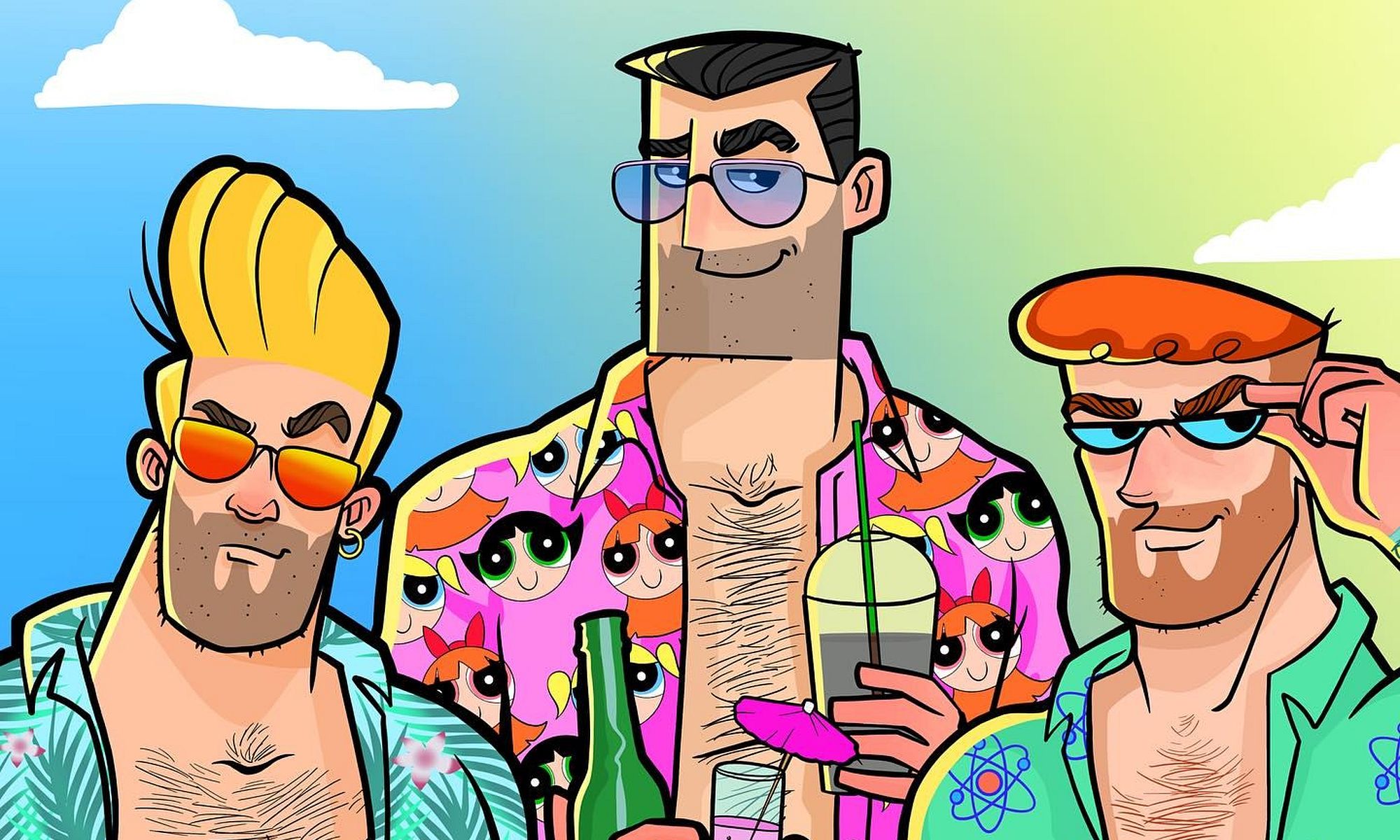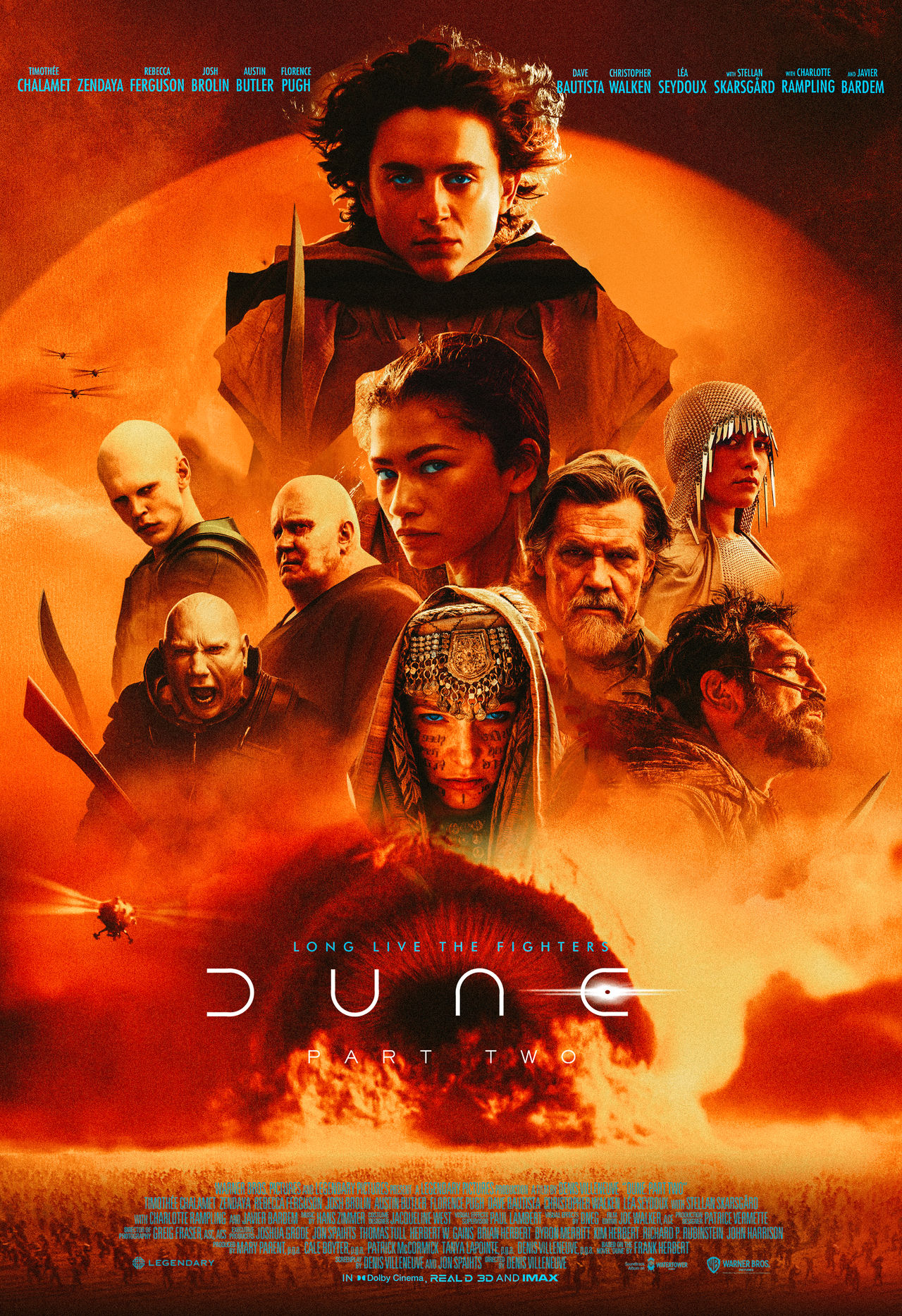"I was expecting to be blown away…but I wasn't."
Dune Part Two was my most—and quite frankly my only—eagerly awaited movie of 2024. I wanted to love it unconditionally. I really did. But I didn't.
I had such high hopes, especially with how Denis Villeneuve so lovingly crafted Part One. But I started getting a pit in my stomach a few weeks ago when it leaked that an adult actress, Anya Taylor-Joy, would be playing Paul's sister, Alia. How? Why? (Those of you familiar with the book know how problematic having an adult in this role is.)
In the book, Alia is a child—three years old as I recall—when the final battle sequence takes place. Her high strangeness, being a fully-developed adult consciousness with memories of generations before her within a child's body, is integral to the story and was the reason she was such a compelling character (fully fleshed out in later novels). Was she going to be age-regressed and CGI'd onto a younger actor? Would her voice be dubbed onto an as-yet-unrevealed child actress? So many questions.
Well, I got the answer last night.
SPOILERS AHEAD
Villeneuve simply sidestepped the whole issue by simply not having her born in this film. I know this is set up for the next installment in the series, where Alia is significantly older, but how is that going to be handled? Jessica had the baby and she grew up off screen?
And you know, the more I think about it this morning, the more this pisses me off.
(Deep breaths. Deep breaths.)
The film was visually stunning, as I expected. The soundtrack lush, and the other minor changes (with one exception that I'll get into shortly) didn't annoy me. Villeneuve flushed out the story a bit in a way I could've seen Frank Herbert doing himself. Austin Butler's portrayal of Feyd-Rautha was truly psychotic—much more so than I imagined when I read the novel, and a far, far cry from Sting's blue metallic speedo portrayal in Lynch's 1984 adaptation.
There were some editing issues that stood out for me. Before Paul's coming-of-age riding of the Sandworm, he was sent out into the deep desert by Stilgar to survive overnight and return the next morning. We see him walking off, and then all of a sudden Chani shows up and she's explaining how windtraps work to collect moisture and he's making googly eyes at her—and then it's the next day and they're all back with the group.
Further, Paul's firstborn—who died in the violence of the last third of the book—was completely absent in this adaptation. Not a word of it was mentioned, even though Chani was clearly wearing the blue nezhoni scarf, indicating she gave birth to a male child. And yet, not a word. Nothing. Zilch.
And that brings me to the ending…
Paul kills the Baron because Alia isn't born yet and…because poetic justice for the Baron killing Paul's father? Okay, in context it did make sense.
I understand that we're being set up for a third film based on Dune Messiah, but to have Paul announce that he would be marrying the Emperor's daughter Irulan for purely political reasons without simultaneously reassuring Chani that nothing had changed between the two of them? I mean, that was one scene that has stayed with me since I first read the novel in 1977:
"I swear to you now," he whispered, "that you'll need no title. That woman over there will be my wife and you but a concubine because this is a political thing and we must weld peace out of this moment, enlist the Great Houses of the Landsraad. We must obey the forms. Yet that princess shall have no more of me than my name. No child of mine nor touch nor softness of glance, nor instant of desire."
"So you say now," Chani said. She glanced across the room at the tall princess.
"Do you know so little of my son?" Jessica whispered. "See that princess standing there, so haughty and confident. They say she has pretensions of a literary nature. Let us hope she finds solace in such things; she'll have little else." A bitter laugh escaped Jessica. "Think on it, Chani: that princess will have the name, yet she'll live as less than a concubine—never to know a moment of tenderness from the man to whom she's bound. While we, Chani, we who carry the name of concubine—history will call us wives."
As this final scene in the film was playing out I kept whispering to myself, "Say it. Say it!"
But no. That whole interchange never happened. Chani stormed off in a huff, summoned a worm, and rode off into the sunset.
Will I see it film again? Probably not. I had tentative plans to see it in IMAX with a couple friends in the coming week, but I begged off and told them (both huge fans of the book) why. Am I disapointed in it overall? Not overall, but with specific parts, yes. Very much so. Is this the closest adaptation to the book I'm likely to see in my lifetime? Definitely.
Do I recommend it? If you've never read the source material, and only saw Part One, definitely. You'll enjoy it for the story that it is. If you know and love the book (and you've read my spoilers) go in with your eyes open and make up your own minds. And let me know what you think!
At least he didn't make it rain…

